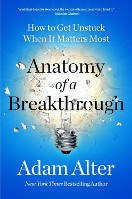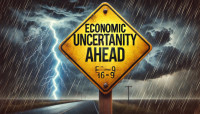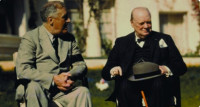
Have you ever felt stuck? Whether in your career, where you live, or your relationships, almost everyone has experienced that feeling of being unable to move forward. When we find ourselves in this situation, we often wish for a guidebook to help us navigate our way out. Fortunately, Adam Alter, a psychology professor at NYU and author of "Anatomy of a Breakthrough: How to Get Unstuck When It Matters Most," offers valuable insights into overcoming protracted periods of stuckness.
Adam Alter's interest in the phenomenon of being stuck began during his college years when he was studying actuarial science. He didn't love it, and six months into a fellowship program, he faced a pivotal decision: quit within a week or be stuck paying back all the fellowship money if he left later. Alter chose to quit, and this moment of uncertainty and feeling stuck sparked his interest in understanding how people deal with such situations.
The Causes of Stuckness
One of the most important things to remember is that stuckness is a universal phenomenon. Alter's research has shown that almost everyone has felt stuck. In a survey conducted over several years and across various countries, he found that 99% of people admitted to feeling stuck in at least one area of their lives. About 50% reported being stuck for years or even decades, and many expressed a willingness to pay significant amounts of money to break free from their predicament.
Understanding the causes of stuckness is crucial to overcoming it. According to Alter, two main categories of factors contribute to this feeling.
The Plateau Effect occurs when strategies and methods that once worked well stop being effective. For example, athletes and those pursuing intellectual goals often experience a plateau where their progress slows or halts despite continued effort. This phenomenon is well-documented in various fields, including language learning and physical training.
Major life changes, such as marriage, divorce, the birth of a child, or career shifts, occur roughly every 8 to 12 years and can significantly disrupt our sense of stability. These events, known as life quakes, can leave us blindsided and stuck. Alter also highlights the concept of the "end of decade crisis," where people experience heightened anxiety and reflection as they approach a new decade in their lives (ages ending in nine).
Strategies to Get Unstuck
If you're feeling stuck, it's important to know that there are actionable steps you can take to move forward. Based on Alter's research, here are some key strategies.
We are most motivated at the beginning and end of a long-term goal. To maintain motivation throughout, break your goal into smaller, manageable parts. Celebrate each small victory to keep yourself engaged and focused.
You can maintain momentum and avoid feeling overwhelmed by breaking down large goals into smaller sub-goals. For example, if you're writing a book, set smaller word count targets and reward yourself for reaching each milestone.
Inspired by Buddhist philosophy, sacred pauses emphasize slowing down and reflecting. When we're stuck, our instinct is to act quickly, but taking time to understand our situation and emotions can lead to more effective solutions.
Conduct a friction audit to identify and address the areas where you experience the most resistance. By pinpointing and reducing friction, you can create a smoother path forward.
Embracing Failure
Failure is often viewed negatively, but it plays a crucial role in learning and growth. Studies have shown that an optimal failure rate of around 15% is ideal for learning. We gain valuable feedback that helps us improve when encountering setbacks and mistakes. Embracing failure and understanding it as part of the journey to success can be empowering.
Persistence is key to achieving breakthroughs. The more attempts we make, the higher our chances of success. This concept, known as the "quantity leads to quality" principle, applies to various aspects of life, including creativity and career development. Exposing ourselves to multiple opportunities increases the likelihood of finding the right fit and experiencing a hot streak—exceptional productivity and success.
In creative pursuits, alternating between exploration and exploitation can lead to breakthroughs. Exploration involves different approaches and experimenting, while exploitation focuses on refining and perfecting a chosen method. For instance, the renowned artist Jackson Pollock spent years exploring various styles before discovering his famous drip technique. He then exploited this technique, leading to some of his most celebrated works.
How we frame obstacles significantly impacts our ability to overcome them. Viewing challenges as opportunities for growth rather than threats can change our approach and outcomes. Alter's research on stereotype threat demonstrates that reframing tasks as challenges rather than tests of ability can enhance performance and reduce anxiety.
Knowing When to Move On
Sometimes, getting unstuck means knowing when to move on to something better. Conducting a friction audit helps identify areas where change is needed. For example, Netflix's introduction of post-play to reduce the friction of choosing the next episode led to the phenomenon of binge-watching. Similarly, recognizing and addressing friction points in our personal lives can lead to positive changes.
Feeling stuck is a common human experience but doesn't have to be permanent. By understanding the causes of stuckness and applying strategies like the goal gradient effect, narrow bracketing, sacred pauses, and embracing failure, we can navigate our way to breakthroughs. Persistence, exploration, and reframing obstacles are crucial in getting unstuck. Remember, you're not alone in this journey; you can find your way forward with the right approach.
About the Author
 Robert Jennings is the co-publisher of InnerSelf.com, a platform dedicated to empowering individuals and fostering a more connected, equitable world. A veteran of the U.S. Marine Corps and the U.S. Army, Robert draws on his diverse life experiences, from working in real estate and construction to building InnerSelf with his wife, Marie T. Russell, to bring a practical, grounded perspective to life’s challenges. Founded in 1996, InnerSelf.com shares insights to help people make informed, meaningful choices for themselves and the planet. More than 30 years later, InnerSelf continues to inspire clarity and empowerment.
Robert Jennings is the co-publisher of InnerSelf.com, a platform dedicated to empowering individuals and fostering a more connected, equitable world. A veteran of the U.S. Marine Corps and the U.S. Army, Robert draws on his diverse life experiences, from working in real estate and construction to building InnerSelf with his wife, Marie T. Russell, to bring a practical, grounded perspective to life’s challenges. Founded in 1996, InnerSelf.com shares insights to help people make informed, meaningful choices for themselves and the planet. More than 30 years later, InnerSelf continues to inspire clarity and empowerment.
Creative Commons 4.0
This article is licensed under a Creative Commons Attribution-Share Alike 4.0 License. Attribute the author Robert Jennings, InnerSelf.com. Link back to the article This article originally appeared on InnerSelf.com
books_attitude
 by
by 







